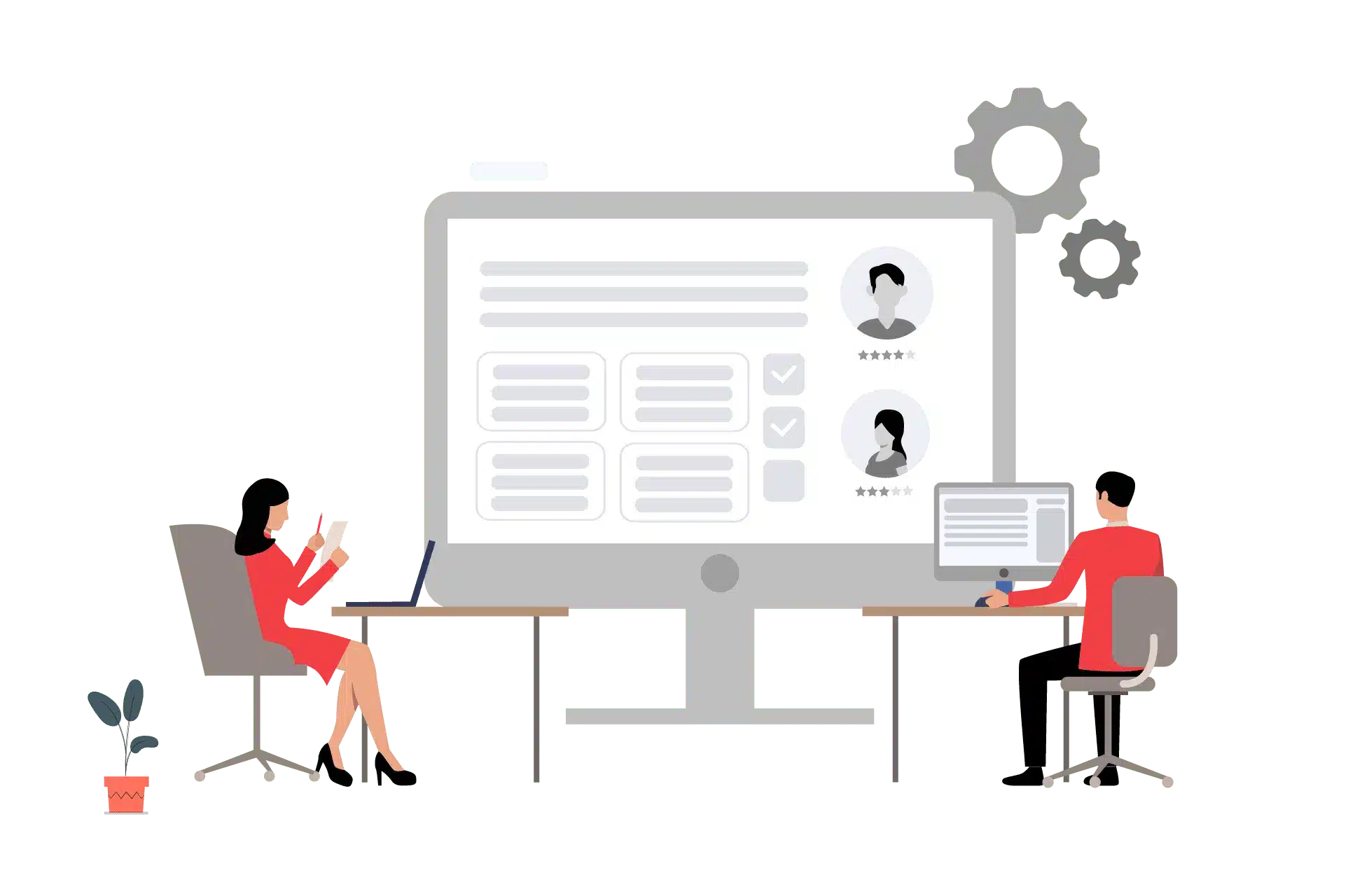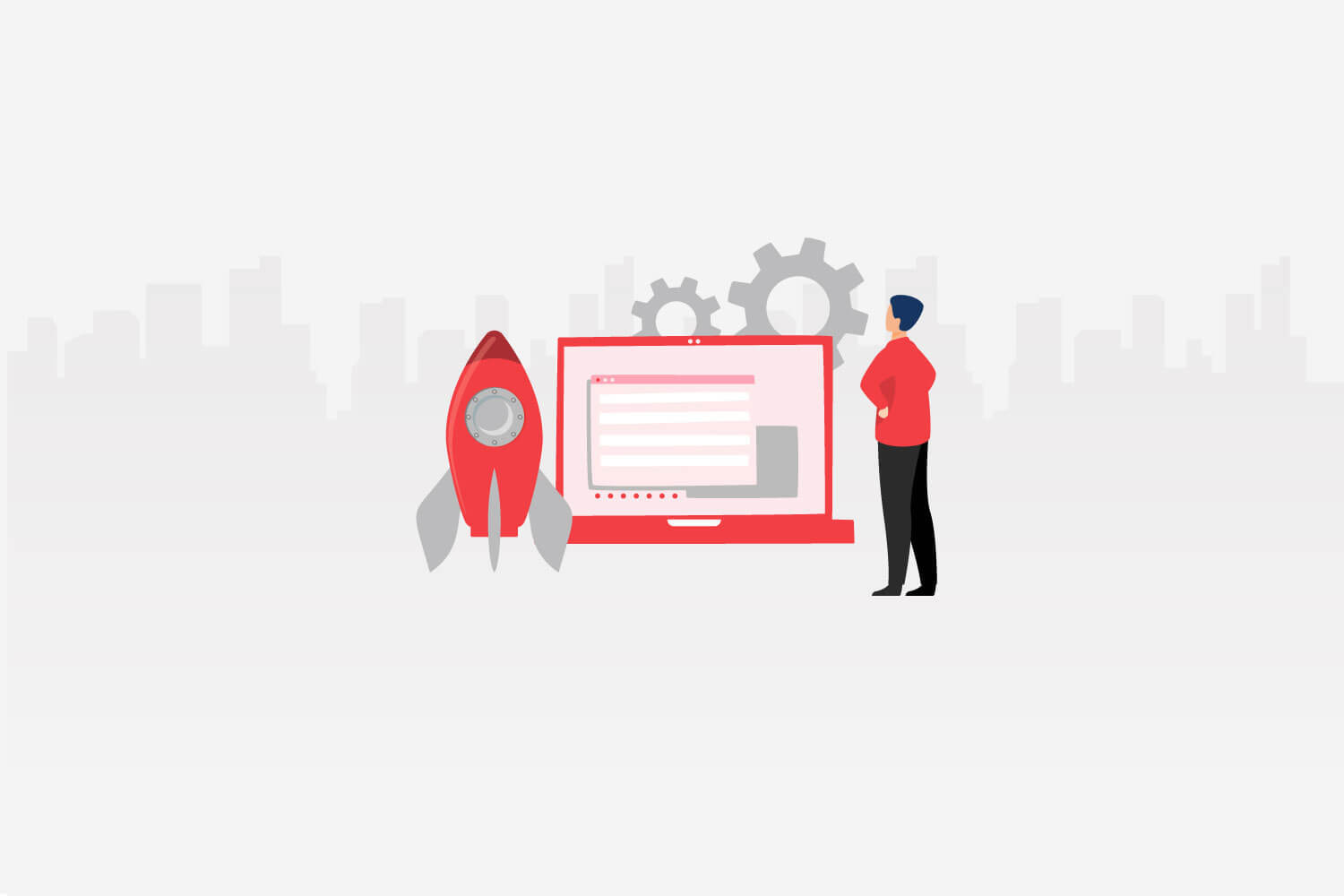Utility workers are the unsung heroes behind the seamless functioning of essential services and infrastructure. In a world that relies on electricity, water, gas, and telecommunications, utility workers play a pivotal role in ensuring these lifelines remain uninterrupted. They are the linchpin of progress, working tirelessly to maintain, repair, and improve the critical systems that keep our communities running smoothly.
But finding the right utility worker is no simple task. To hire the best talent for your organization, you must assess not only their technical prowess but also their soft skills, like communication, teamwork, and adaptability. In this blog, we’ll delve into the world of utility workers, exploring their vital role in a company’s growth and resilience. We’ll also guide you on how to effectively assess their on-the-job skills, ensuring you make the right hiring decisions that keep your operations running smoothly and your company thriving. So, let’s dive in and discover the keys to building a top-notch utility worker team.
What is a utility worker?
Utility workers are the backbone of industries that rely on critical infrastructure. They are highly skilled professionals responsible for ensuring the uninterrupted flow of essential services like electricity, water, gas, and telecommunications. Here’s a closer look at their roles, responsibilities, and the invaluable contributions they make to a company’s growth:
Roles and Responsibilities:
- Maintenance and Repair: Utility workers maintain and repair infrastructure, ensuring it functions efficiently.
- Emergency Response: They are the first responders during outages or emergencies, swiftly restoring services.
- Safety Compliance: Utility workers adhere to strict safety protocols, safeguarding employees and the public.
- Technical Expertise: They possess technical knowledge in their respective fields, such as electrical systems, pipelines, or telecommunications networks.
- Teamwork: Collaboration with colleagues to resolve complex issues is a key aspect of their role.
Contributions to Company’s Growth:
- Reliable Services: Their work guarantees continuous, reliable services, enhancing customer satisfaction.
- Cost Savings: Efficient maintenance reduces downtime and operational costs.
- Innovation: Utility workers often suggest improvements, fostering innovation and growth.
In summary, utility workers are the linchpins of infrastructure, ensuring uninterrupted services and contributing significantly to a company’s growth and success.
Tasks Performed by Utility Workers:
- Routine maintenance of utility systems
- Troubleshooting and repair during outages
- Conducting safety inspections
- Collaborating with cross-functional teams
- Implementing system upgrades and improvements
Understanding their pivotal role is the first step in hiring the right utility worker for your organization.
Hard skills to assess in utility workers
When evaluating candidates for utility worker positions, it’s crucial to identify the specific hard skills required for the role. These technical competencies are essential for ensuring that utility workers can effectively maintain, repair, and operate critical infrastructure. Here are the key hard skills to assess:
- Technical Proficiency: Assess the candidate’s knowledge and experience in the relevant technical field, whether it’s electrical systems, water treatment, or telecommunications. Look for certifications or training that demonstrate their expertise.
- Equipment Operation: Evaluate their ability to operate specialized equipment used in utility maintenance and repair. Ensure they can handle tools and machinery safely and effectively.
- Safety Protocols: Utility workers must prioritize safety. Assess their understanding of safety procedures and their track record in adhering to safety regulations to prevent accidents and injuries.
- Problem-Solving Skills: Test their problem-solving abilities by presenting hypothetical scenarios or real-life challenges they might encounter in their role. Evaluate their capacity to troubleshoot and find solutions efficiently.
- Data Analysis: Depending on the utility sector, candidates may need data analysis skills to monitor systems, detect anomalies, and make informed decisions. Inquire about their experience with data analysis tools or software.
- Technical Documentation: Assess their ability to maintain accurate records, document maintenance activities, and create reports. Effective documentation is crucial for tracking system performance and compliance.
To evaluate these hard skills effectively, consider using practical assessments, technical tests, and scenario-based interviews. Additionally, request references and work samples to verify their experience and technical proficiency. By thoroughly assessing these hard skills, you can ensure that the utility worker you hire is well-equipped to excel in their role and contribute to the reliability and efficiency of your infrastructure.
Soft skills to assess in utility workers
While technical proficiency is crucial, utility workers also need a set of soft skills to excel in their roles. These skills are essential for effective communication, teamwork, adaptability, and overall job performance. When assessing candidates for utility worker positions, consider the following soft skills:
- Communication: Effective communication is vital in a utility worker’s role. Evaluate a candidate’s ability to convey information clearly, both verbally and in writing, and their capacity to listen actively to colleagues and supervisors.
- Teamwork: Utility workers often collaborate with diverse teams to address complex issues. Assess a candidate’s ability to work harmoniously with others, share knowledge, and contribute to group goals.
- Adaptability: Infrastructure issues can arise unexpectedly, requiring utility workers to adapt quickly. Gauge a candidate’s flexibility and their ability to handle changing priorities and emergency situations.
- Problem-Solving: Utility workers must think critically and solve problems efficiently. Present real or hypothetical scenarios to assess their problem-solving skills and their capacity to make informed decisions under pressure.
- Attention to Detail: Precision is crucial in maintenance and repair work. Assess a candidate’s attention to detail through their past work history and their ability to follow instructions accurately.
- Customer Service: In some utility roles, interacting with customers is necessary. Evaluate a candidate’s customer service skills, including their ability to address inquiries, resolve issues, and maintain a positive customer experience.
To assess these soft skills effectively, include behavioral interview questions, role-playing exercises, and situational assessments during the hiring process. Additionally, contact references and inquire about the candidate’s interpersonal skills, adaptability, and communication abilities in previous roles. By considering both hard and soft skills, you can identify utility workers who not only possess technical expertise but also the interpersonal qualities necessary for success in this critical role.
How to test a utility worker’s skills?
Evaluating a utility worker’s skills requires a comprehensive approach that goes beyond traditional interviews. Implementing technical tests is vital to ensure that candidates possess the necessary hard skills for the role. Here’s a brief overview of the different types of technical tests and their importance:
- Technical Assessments: These tests evaluate a candidate’s technical knowledge and competence in areas relevant to the utility worker position. Questions or scenarios related to electrical systems, plumbing, equipment operation, or other specialized skills can help gauge their expertise.
- Equipment Operation Tests: For roles that involve operating machinery or specialized tools, practical assessments on equipment operation are crucial. These tests ensure that candidates can handle equipment safely and effectively.
- Safety Protocol Evaluation: Safety is paramount in utility work. Candidates should demonstrate an understanding of safety procedures, including how to respond to emergencies and mitigate risks. Safety tests help identify candidates who prioritize safety.
- Problem-Solving Challenges: Utility workers often encounter complex issues. Problem-solving tests present candidates with real or simulated scenarios, allowing them to showcase their ability to analyze problems and develop solutions.
- Data Analysis Tasks: In roles that require data analysis, candidates can be assessed on their ability to interpret data, identify trends, and make informed decisions based on data-driven insights.
These technical tests are essential because they provide objective measures of a candidate’s capabilities. They ensure that candidates have the necessary hard skills to perform the job safely and efficiently. By incorporating these assessments into your hiring process, you can confidently select utility workers who meet your organization’s technical requirements and contribute to its success.
Where to find the best utility worker?
Finding the best-suited utility workers begins with casting a wide net and leveraging the right platforms and resources. Here’s a brief guide on where to find top candidates for utility worker positions:
- Job Boards: Posting job listings on reputable job boards is a great starting point. Platforms like LinkedIn, Indeed, and industry-specific websites attract a diverse pool of candidates actively seeking opportunities.
- Professional Associations: Many utility workers are members of professional organizations related to their field. Explore these associations and their job boards to connect with experienced candidates who are committed to their industry.
- Local Networking: Attend industry events, conferences, and trade shows to network with potential candidates. Local chapters of professional associations also offer opportunities to meet professionals in your area.
- Employee Referrals: Encourage your current utility workers to refer qualified candidates. Employee referrals often yield high-quality candidates who fit well within your organization’s culture.
- Trade Schools and Technical Colleges: Contact local trade schools and technical colleges offering utility worker programs. These institutions often have job placement services and can connect you with students or recent graduates.
- Government Agencies: If your utility work requires specific certifications or licenses, government agencies responsible for regulating these professions may have resources to help you find qualified candidates.
- Online Communities: Engage with online forums, social media groups, and discussion boards related to utility work. These platforms can be a source of valuable connections and insights.
To leverage these platforms effectively, craft compelling job descriptions that highlight your organization’s values, growth opportunities, and commitment to safety. Actively engage with candidates on these platforms, promptly respond to inquiries, and conduct thorough interviews to assess their suitability for the role. By exploring various channels and creating a strong online presence, you can attract and hire the best utility workers for your team.
Job description template for a utility worker position
About Us:
[Company Name] is a leading [industry/sector] company dedicated to providing essential services to our community. With a commitment to safety, efficiency, and excellence, we take pride in maintaining and improving critical infrastructure, ensuring a reliable flow of utilities such as electricity, water, gas, and telecommunications.
Responsibilities:
- Perform routine maintenance, repairs, and inspections on utility systems and equipment.
- Respond promptly to emergency outages and service disruptions.
- Operate and maintain specialized tools and equipment safely and efficiently.
- Adhere to strict safety protocols and ensure compliance with regulations.
- Collaborate with cross-functional teams to resolve complex issues.
- Document maintenance activities, create reports, and maintain accurate records.
Qualifications:
- High school diploma or equivalent.
- [Specify relevant technical certifications or degrees].
- Proven experience in utility maintenance or related field.
- Proficiency in operating specialized equipment.
- Strong knowledge of safety procedures and protocols.
- Excellent problem-solving skills and attention to detail.
- Effective communication and teamwork abilities.
- [Any other specific qualifications relevant to your organization].
Why Join Us?
- Opportunity to work with a dynamic team dedicated to infrastructure excellence.
- Competitive compensation and benefits package.
- Commitment to professional growth and development.
- Emphasis on safety and a positive work culture.
- [Include any unique selling points of your organization].
Benefits:
- [List specific benefits such as health insurance, retirement plans, paid time off, etc.].
- [Highlight any additional perks or unique benefits your organization offers].
Application Process:
To apply for the Utility Worker position at [Company Name], please submit your resume and a cover letter outlining your qualifications and experience. We look forward to reviewing your application.
[Include information on how candidates can apply, whether through an online application form, email, or other methods.]
Other Important Information:
- [Include any additional details about the position, such as work hours, location, travel requirements, or other relevant information].
Feel free to customize this template to align with your organization’s specific needs and values. Posting a detailed and informative job description will help attract qualified candidates who are the right fit for your utility worker role.
How much does a utility worker cost in the US?
Utility worker salaries in the United States vary based on experience and skills. Here are approximate salary ranges as per recent data:
- Entry-Level Utility Workers:
- Entry-level utility workers with limited experience can expect an annual salary range of $30,000 to $45,000.
- Mid-Level Utility Workers:
- Utility workers with a few years of experience and specialized skills may earn between $45,000 and $70,000 per year.
- Experienced Utility Workers:
- Highly experienced utility workers, often with supervisory roles or niche expertise, can command salaries ranging from $70,000 to $100,000 or more annually.
Please note that these figures can vary based on location, industry, and specific job requirements. Utility worker salaries reflect the importance of their role in maintaining critical infrastructure and services.
Interview questions for utility worker candidates
Effective interviewing is essential when hiring utility workers to ensure they possess the necessary skills and qualities for the role. Here are the top 15 interview questions categorized by soft skills, hard skills, and general skills, along with brief explanations of why they are important:
Soft Skills:
- Can you describe a situation where you had to collaborate with a team to complete a challenging task?
- Assesses teamwork and communication abilities.
- Tell us about a time when you had to adapt to unexpected changes while on the job.
- Evaluates adaptability and flexibility.
- How do you handle high-pressure situations or emergencies, and can you provide an example?
- Gauges their ability to remain calm and effective during critical incidents.
- Share an experience when you had to resolve a conflict or disagreement with a coworker.
- Assesses conflict resolution and interpersonal skills.
- Discuss a project where attention to detail was crucial. How did you ensure accuracy?
- Measures attention to detail and precision in work.
Hard Skills:
- What technical certifications or training do you possess that are relevant to this utility worker position?
- Verifies their technical qualifications.
- Can you explain your experience with operating [specific equipment or machinery relevant to your industry]?
- Assesses their equipment operation expertise.
- Describe your familiarity with safety protocols in utility work. How do you prioritize safety on the job?
- Ensures they prioritize safety compliance.
- Share an example of a complex technical issue you encountered and how you resolved it.
- Evaluates problem-solving skills and technical knowledge.
- How do you stay updated on industry trends and best practices in utility work?
- Demonstrates their commitment to professional development.
General Skills:
- Why are you interested in working as a utility worker for our company?
- Assesses their understanding of your organization and their motivation.
- Can you provide examples of projects where you worked independently, taking initiative without supervision?
- Gauges their self-motivation and initiative.
- How do you prioritize tasks when you have multiple maintenance or repair requests at the same time?
- Evaluates their time management and organizational skills.
- What safety-related incidents or near-misses have you encountered in your previous roles, and how did you address them?
- Assesses their safety consciousness and problem-solving in safety incidents.
- What do you consider the most challenging aspect of utility work, and how do you overcome it?
- Reveals their understanding of the demands of the role and their ability to overcome challenges.
These interview questions provide a well-rounded assessment of candidates, ensuring that they possess the essential soft skills, hard skills, and general skills required for success in a utility worker position.
Assess for utility worker skills to avoid mis-hires
Hiring the right utility worker is pivotal, as mis-hires can lead to costly disruptions and safety concerns. To mitigate such risks, consider implementing skill assessments in your hiring process. Here’s why:
- Efficient Hiring: Skill assessments streamline candidate evaluation, helping you quickly identify top talent and reducing time-to-hire.
- Better Assessment: Assessments provide objective insights into a candidate’s hard and soft skills, minimizing subjective biases.
- Cost Savings: Avoiding mis-hires can save your organization significant resources in training and turnover costs.
Consider using Testlify as your talent assessment tool. Our platform offers tailored assessments for utility worker roles, helping you make informed hiring decisions. Schedule a call for a demo today and discover how Testlify can enhance your hiring process.
By integrating skill assessments into your utility worker hiring process, you can ensure that you select candidates who possess the right technical and interpersonal skills for the role, ultimately contributing to the success and reliability of your operations.







